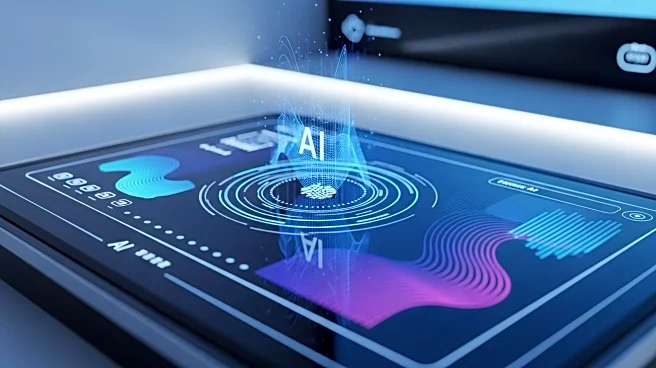What's Happening?
OpenAI is advancing its ChatGPT platform by positioning it as an operating system, allowing users to interact with various applications directly through the chatbot interface. This development enables users to request services from apps like Spotify and Expedia, streamlining tasks such as creating playlists or booking flights. The initiative reflects OpenAI's strategic move to integrate ChatGPT more deeply into everyday digital activities, enhancing its utility beyond simple conversational tasks. This approach aims to consolidate multiple app functionalities into a single, cohesive user experience, potentially transforming how users engage with digital services.
Why It's Important?
The expansion of ChatGPT into an all-in-one app could significantly impact the tech industry by altering how users interact with digital services. By centralizing app functionalities within ChatGPT, OpenAI may reduce the need for multiple standalone applications, potentially disrupting app development and distribution models. This shift could benefit consumers by simplifying digital interactions and improving efficiency. However, it may challenge existing app developers to adapt to a new ecosystem where their services are accessed through a third-party interface. The move also underscores the growing influence of AI in reshaping digital landscapes and user experiences.
What's Next?
As OpenAI continues to develop ChatGPT's capabilities, stakeholders in the tech industry may need to reassess their strategies to accommodate this new model of app interaction. Developers might explore partnerships with OpenAI to ensure their apps are compatible with ChatGPT's interface, while competitors could innovate alternative solutions to maintain market relevance. Additionally, regulatory bodies may scrutinize the implications of such integrations on data privacy and security, prompting discussions on ethical AI use. The evolution of ChatGPT as an operating system could lead to broader adoption of AI-driven platforms, influencing future technological advancements.
Beyond the Headlines
The integration of ChatGPT as an operating system raises questions about the ethical use of AI in managing personal data across multiple applications. As users increasingly rely on AI to handle diverse tasks, concerns about data privacy and security may intensify. Furthermore, this development could influence cultural perceptions of AI, shifting from a tool for specific tasks to a central hub for digital interactions. Long-term, this could lead to a reevaluation of human-computer interaction paradigms, as AI systems become more integral to daily life, potentially redefining societal norms around technology use.










